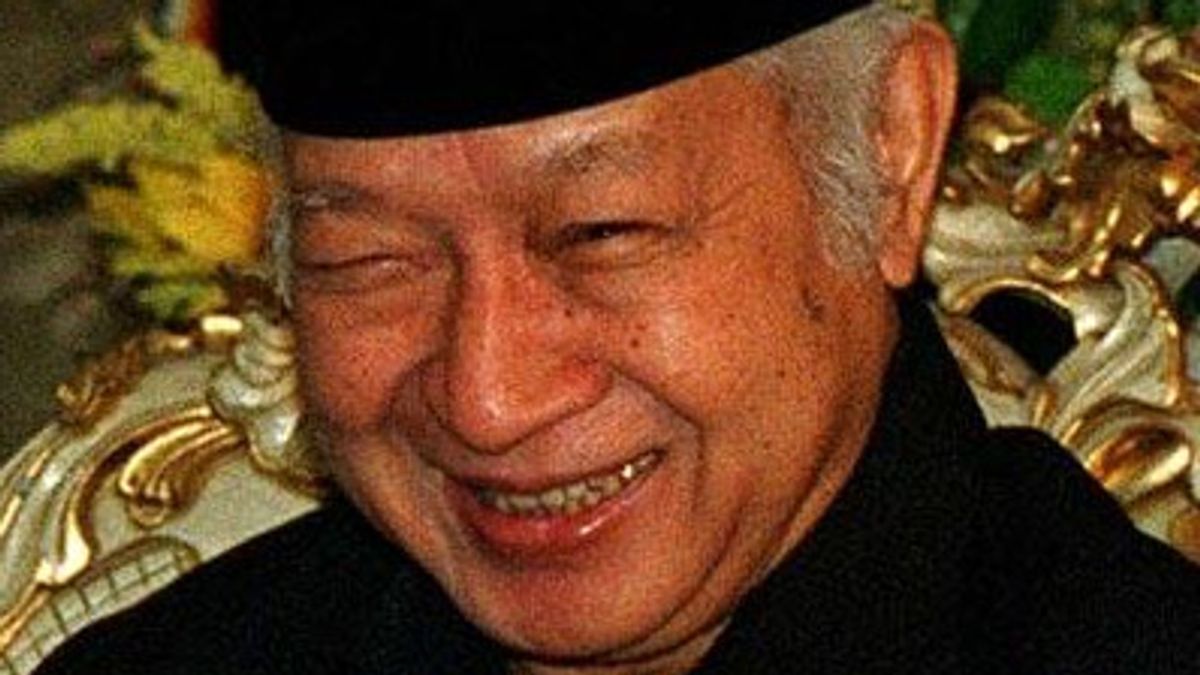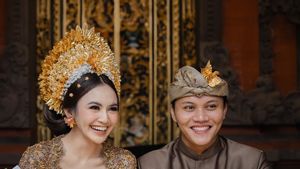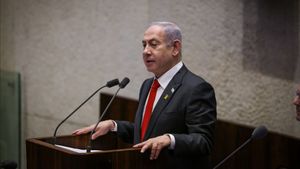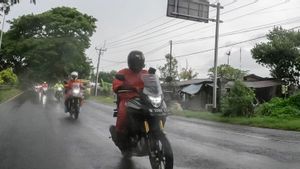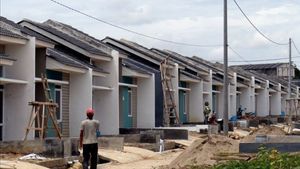JAKARTA - President Joko Widodo (Jokowi) responded to criticism from the University of Indonesia Student Executive Board (BEM UI). Jokowi admitted that he was very open to criticism. But polite criticism. Criticism with terms and conditions is not new. Suharto once said so.
In a publication video broadcast on the Presidential Secretariat's YouTube channel on Tuesday, June 29, Jokowi also asked the UI rectorate not to silence students' freedom of expression. Jokowi admits that he understands that criticism is a form of student expression.
Even so, Jokowi reminded about the culture of manners and manners that must be obeyed. Jokowi is not unaware of the swift criticism targeting him. "In the past, there were those who said I was a klemar-klemer. Some said I was a plonga-plongo," said Jokowi.
"Then again, there were those who said I was authoritarian. Then there were also those who said that I was a lame duck and recently someone said that I was Mr. Bipang. And finally, someone said about The King of Lip Service."
"I think this is a form of student expression. And this is a democratic country. So criticism is okay. And universities don't need to prevent students from expressing themselves. But also remember that we have a culture of etiquette, a culture of courtesy."
Criticism with terms and conditionsThe matter of criticism with these terms and conditions has been recorded in history. Suharto became a figure who was attached to this attitude. The Republika news archive on January 21, 1993, which was quoted in the book of the Second President of the Republic of Indonesia, General HM Suharto in the News (1993) tells the story.
Suharto has explained at length about his attitude towards criticism. Basically Suharto did not mind being criticized. The condition is that the criticism must be quality, constructive, and bring a way out of it. The last condition, Suharto also asked for criticism to be submitted politely.
"Criticism should not come from criticism. If the criticism is just to interrupt (criticise), it's easy. 'Wrong… wrong… wrong,' but can't show which one is right. able to criticize, must be able to show what is good. That's what we have to cultivate, "said Suharto.
Suharto continued, he agreed that the government needed control. However, Suharto emphasized the limits of such control. Suharto also brought culture and national identity as things that must be obeyed in politics and society, including when criticizing.

"The Republic of Indonesia that we founded, we proclaimed on August 17, 1945. One day later the 1945 Constitution and Pancasila were born. Therefore, of course, the life of our state, nation and society must be based on what is the basis of the proclamation itself."
"The problem now is how to convey criticism that is in accordance with Pancasila Democracy. Now there are asking questions as if our democracy is not developing. Some say it is sluggish and so on. Actually they do not understand what should be done based on the existing consensus."
Suharto explained the consensus he meant. According to him, in the consensus, the people are given ultimate sovereignty. The implementation of popular sovereignty is left to the people's representatives who sit in parliament. Suharto asked everyone to be aware of the role of parliament as their representative.
"Initially there was Guided Democracy. People's representatives revoked Guided Democracy, if I'm not mistaken, in the MPRS session in 1967. There was already emphasis on the implementation of Pancasila Democracy."
The implementation of Pancasila democracy, said Suharto, involves deliberation and consensus, as stipulated in the fourth precept. In Suharto's interpretation, differences are justified as things that must be discussed. The step to negotiate differences is important in order to reach consensus.
Then, if Suharto mentions quality criticism, what does that mean? He said, quality criticism is one that does not conflict with the interests of the people. It became one of the guidelines in the implementation of Pancasila Democracy. The second is the criticism that refers to P4.
P4 or Guidelines for Implementing the Implementation of Pancasila is one of the references to life in Pancasila Democracy. P4 was born through the General Assembly of the People's Consultative Assembly in 1978. "That should be used as a reference because P4 is actually to implement Pancasila Democracy," Suharto.
Criticism for Jokowi
Jokowi's response was triggered by uploading memes and visual illustrations of the University of Indonesia Student Executive Board (BEM UI) criticizing the leadership of President Joko Widodo (Jokowi). One big narrative of the social media campaign, BEM UI calls Jokowi 'The King of Lip Service'.
There are several grounds for this criticism. The first is Jokowi's statement that he once said he missed being demoed. Jokowi said, a government needs to be criticized, including through demonstrations. Jokowi said that when he was still the mayor of Solo. Then what happens when the demonstration is done?
BEM UI alluded to various repressive actions carried out by state apparatus under the Jokowi administration against the masses in many rallies. Demonstration of the Omnibus Law on Job Creation, actions on Labor Day 2021, until National Education Day 2021 and mass protests against the revision of the KPK Law.
Jokowi has also been criticized for his response to efforts to weaken the KPK. Jokowi has often expressed support for the KPK, while at the same time legitimizing the revision of the KPK Law, which is considered to weaken the corruption eradication agenda. Those are the basics that BEM UI has raised.
BEM UI also includes a list of bibliography and references that support their criticism, including the MEMORI article entitled History of the ITE Law: Megawati Submits Draft, Ratified by SBY and Continues until Jokowi. "Everything indicates that (Jokowi)'s words were nothing more than lip service," wrote BEM UI in a statement.
The full study series can be accessed via the following link: https://t.co/02eQnV2aQ9 UI-wide BEM Alliance#TolakOmnibusLaw#CabutOmnibusLaw#PekanMelawan pic.twitter.com/kOVe0HFIag
— BEM UI (@BEMUI_Official) June 29, 2021
"Jokowi often sells out his sweet promises. But the reality is often not in harmony. He says this, the facts are like that. Starting from longing for demonstrations, revising the ITE Law, strengthening the KPK, and a series of other promises."
The criticism led to a reprimand. The UI Chancellor summoned ten members of BEM UI and called them violating the rules. The Chancellor also called Jokowi a symbol of the state.
The UI rectorate's statement is far-fetched, as explained in the BERNAS article entitled Many Reasons to Fight. In addition to pressure from the campus, a number of BEM UI members also experienced social media hacking.
*Read other information about JOKOWI or other interesting articles from Yudhistira Mahabharata.
Other BERNASThe English, Chinese, Japanese, Arabic, and French versions are automatically generated by the AI. So there may still be inaccuracies in translating, please always see Indonesian as our main language. (system supported by DigitalSiber.id)
